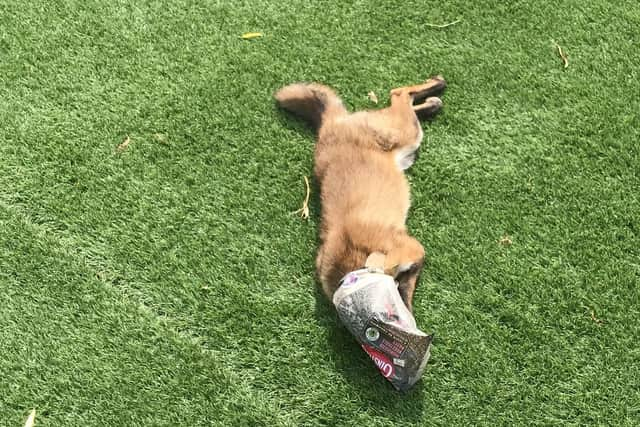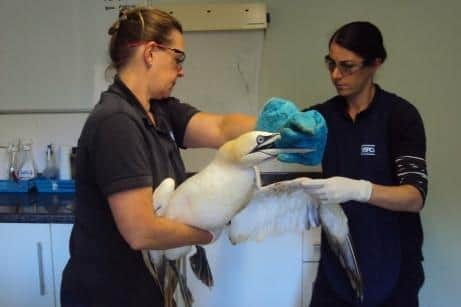A fox with his head caught in a pasty wrapper and a hedgehog whose neck was tangled in plastic, just some of the horrific RSPCA cases
and live on Freeview channel 276
Despite people being in lockdown for many months the RSPCA still received more than 10 calls a day about animals affected by litter including: a baby hedgehog with plastic wrapped around her neck; a fox with his head caught in an old Cornish pasty wrapper; a gannet entangled in plastic.
The animal welfare charity is urging people to help protect animals by picking up any litter as well as ensuring they take their litter home with them.
Advertisement
Hide AdAdvertisement
Hide Ad

Head of the RSPCA’s wildlife department Adam Grogan said: “Our staff deal with thousands of incidents every year where animals have been impacted by litter.
“Litter is one of the biggest hazards our wildlife faces today and the pandemic has just added to the problem with many disposable masks just being discarded on the ground. These are a new danger to animals and we’ve been called out to rescue animals like ducks and gulls caught up in the masks’ elastic straps. That’s why we’re calling on the public to get involved in the Great British Spring Clean.”
The RSPCA also sees many animals arriving into its care with terrible injuries caused by angling litter such as discarded fishing line and hooks to plastic netting.


Adam added: “Animals who get their heads or necks stuck in litter can suffer severe injuries as they struggle to break free and can even suffocate, while others will slowly grow weaker and weaker as they try to hunt or find food or water.
Advertisement
Hide AdAdvertisement
Hide Ad“Others will get fishing line or netting cutting deep into their skin, affecting circulation and with wounds becoming seriously infected. These hazards can very quickly become a matter of life or death for these animals.
“The majority of anglers do dispose of their litter properly and it is frustrating that those who don’t possibly don’t realise how dangerous it is to animals.
“If members of the public see discarded litter we would encourage them to pick it up safely and put it in the bin, remembering to wash their hands after. Their action could save an animal’s life.”
In these confusing and worrying times, local journalism is more vital than ever. Thanks to everyone who helps us ask the questions that matter by taking out a subscription or buying a paper. We stand together. Liam Hoden, editor.
Comment Guidelines
National World encourages reader discussion on our stories. User feedback, insights and back-and-forth exchanges add a rich layer of context to reporting. Please review our Community Guidelines before commenting.